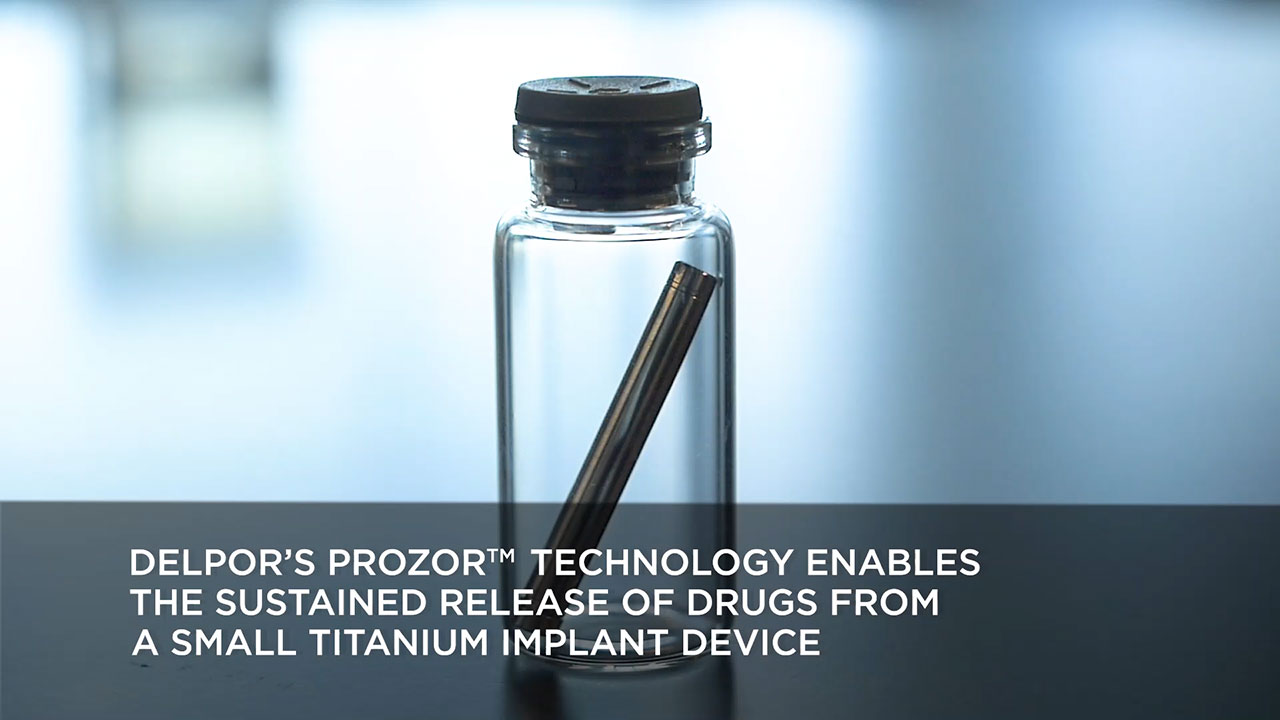Delpor Advances Pipeline to Include Spasticity Maintenance Therapy with $2.5 Million NIH Grant for Tizanidine Implant
Delpor Advances Pipeline to Include Spasticity Maintenance Therapy with $2.5 Million NIH Grant for Tizanidine Implant
Company expects to enter clinic by 2023 and if approved, Delpor’s tizanidine implant will be the first minimally invasive, long-acting therapy for the maintenance of moderate to severe spasticity
Expanded pipeline supports long-term growth in CNS including Schizophrenia and Opioid Use Disorder
BRISBANE, Calif.--(BUSINESS WIRE)--Delpor, Inc. (Delpor), a clinical stage biopharmaceutical company that utilizes innovative technologies to develop once-yearly therapies for chronic conditions, today announced an NIH grant award of $2.5 million for the further advancement of the company’s tizanidine implant product (DLP-208) for moderate-severe spasticity.
This product is based on Delpor’s PROZOR™ implantable drug delivery technology and is expected to deliver therapeutic levels of tizanidine for a period of 3-6 months. If approved, Delpor’s tizanidine implant will offer a significant improvement over Intrathecal Baclofen (ITB), which is the current standard of care for moderate-severe spasticity.
“We’ve created DLP-208, a tizanidine implant which can provide sustained therapy for several months, while only requiring a 10-minute procedure performed in an outpatient setting. The product has the potential to enhance treatment outcomes appreciably and confer measurable benefits that improve the quality of life for spasticity patients,” said Tassos Nicolaou, Delpor’s President and Chief Executive Officer.
Spasticity is characterized by uncontrolled, repetitive, and involuntary contractions of skeletal muscles. It is a common, distressing, and disabling complication in a high proportion of patients with cerebral palsy, multiple sclerosis, traumatic brain injury, spinal cord injury, and stroke. Patients can have significant weakness, pain and limited mobility, which can lead to decreased quality of life and difficulty maintaining personal care. Antispasticity medications include baclofen (delivered orally or by intrathecal infusion) and tizanidine (delivered orally). Both drugs need to be administered multiple times each day when delivered orally, while ITB therapy exposes patients to serious risks related to the invasive procedure, the mechanically complex intrathecal pump, and a declining tolerance of baclofen over time.
Delpor is leading a new wave of innovation in CNS disorders with the company’s proprietary PROZOR technology. PROZOR enables the sustained release of drugs from a non-mechanical, matchstick-long, implantable drug delivery device based on a unique formulation. The device is implanted in the abdomen during a simple, 10-minute in-office procedure, and delivers therapeutic levels of the drug for as long as one year. Potential benefits include complete medication adherence for as long as one year after a single administration, and steady drug release without adverse event inducing peaks, or sub-therapeutic troughs. The company is focusing on CNS drugs including a once-yearly risperidone (DLP-114) for schizophrenia maintenance therapy which is currently in Phase II, and a once-yearly naltrexone (DLP-160) for Opioid Use Disorder which is scheduled to advance to Phase I in 2022.
About Delpor
Delpor is a clinical stage biopharmaceutical company that utilizes innovative technologies to develop once-yearly therapies for chronic conditions. The Company’s lead product is a 6-12-month formulation of Risperidone for the treatment of schizophrenia. Delpor is also pursuing 6-12-month formulations of other drugs targeting CNS conditions including Schizophrenia, Addiction, Spasticity, Parkinson’s, Alzheimer’s, and other conditions. Additional information can be found at www.delpor.com
About DLP-208
DLP-208 is an investigational therapy that employs Delpor’s proprietary technology platform. It utilizes a matchstick-long implant device, that is placed sub-dermally to provide continuous and consistent drug therapy of tizanidine for moderate-severe spasticity maintenance therapy lasting for 3-6 months. Research for DLP-208 is supported by the National Institutes of Health under Award Number 2R44NS110135-02. The content of this release is solely the responsibility of Delpor and does not necessarily represent the official views of the National Institutes of Health.
Forward-Looking Statements
To the extent any statements made in this release contain information that is not historical, these statements are essentially forward-looking and are subject to risks and uncertainties, including the difficulty of predicting FDA approvals, acceptance and demand for new pharmaceutical products, the impact of competitive products and pricing, new product development and launch, reliance on key strategic alliances, availability of raw materials, availability of additional intellectual property rights, availability of future financing sources, the regulatory environment and other risks the Company may identify from time to time in the future.
Contacts
Media & Investor Relations Inquiries email:
Jay Smith
Chief Commercial Officer
info@delpor.com

